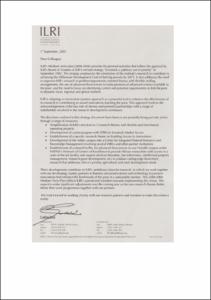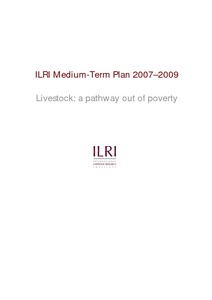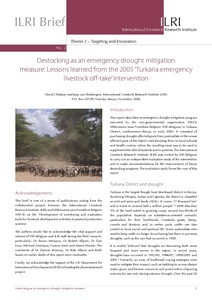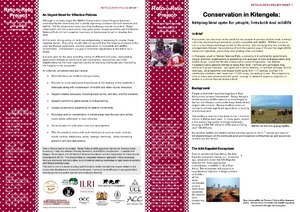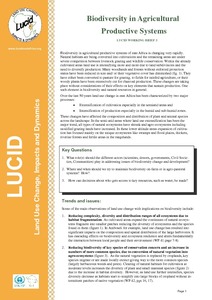Location
Vision, mission and strategy
ILRI's strategy 2013-2022 was approved in December 2012. It emerged from a wide processof consultation and engagement.
ILRI envisions... a world where all people have access to enough food and livelihood options to fulfil their potential.
ILRI’s mission is... to improve food and nutritional security and to reduce poverty in developing countries through research for efficient, safe and sustainable use of livestock—ensuring better lives through livestock.
ILRI’s three strategic objectives are:
- with partners, to develop, test, adapt and promote science-based practices that—being sustainable and scalable—achieve better lives through livestock.
- with partners,to provide compelling scientific evidence in ways that persuade decision-makers—from farms to boardrooms and parliaments—that smarter policies and bigger livestock investments can deliver significant socio-economic, health and environmental dividends to both poor nations and households.
- with partners,to increase capacity among ILRI’s key stakeholders to make better use of livestock science and investments for better lives through livestock.
This is ILRI’s second ten-year strategy. It incorporates a number of changes, many based on learning from the previous strategy (2000–2010, initially produced in 2000 and modified in 2002), an interim strategy (2011–2012) and an assessment of the external and internal environments in which the institute operates.
Members:
Resources
Displaying 771 - 775 of 1152ILRI medium-term Plan 2004–2006: Livestock—A pathway out of poverty
ILRI Medium-Term Plan 2007–2009. Livestock: a pathway out of poverty
Destocking as an emergency drought mitigation measure: lessons learned from the 2005 'Turkana emergency livestock off-take' intervention
This report describes an emergency drought mitigation program executed by the non-governmental organization (NGO) Vétérinaires Sans Frontières Belgium (VSF-Belgium) in Turkana District, northwestern Kenya, in early 2005. It consisted of purchasing drought-affected goats from pastoralists in the worse affected parts of the district and donating them to local schools and health centres, where the resulting meat was to be used to supplement the diet of students and in-patients.


